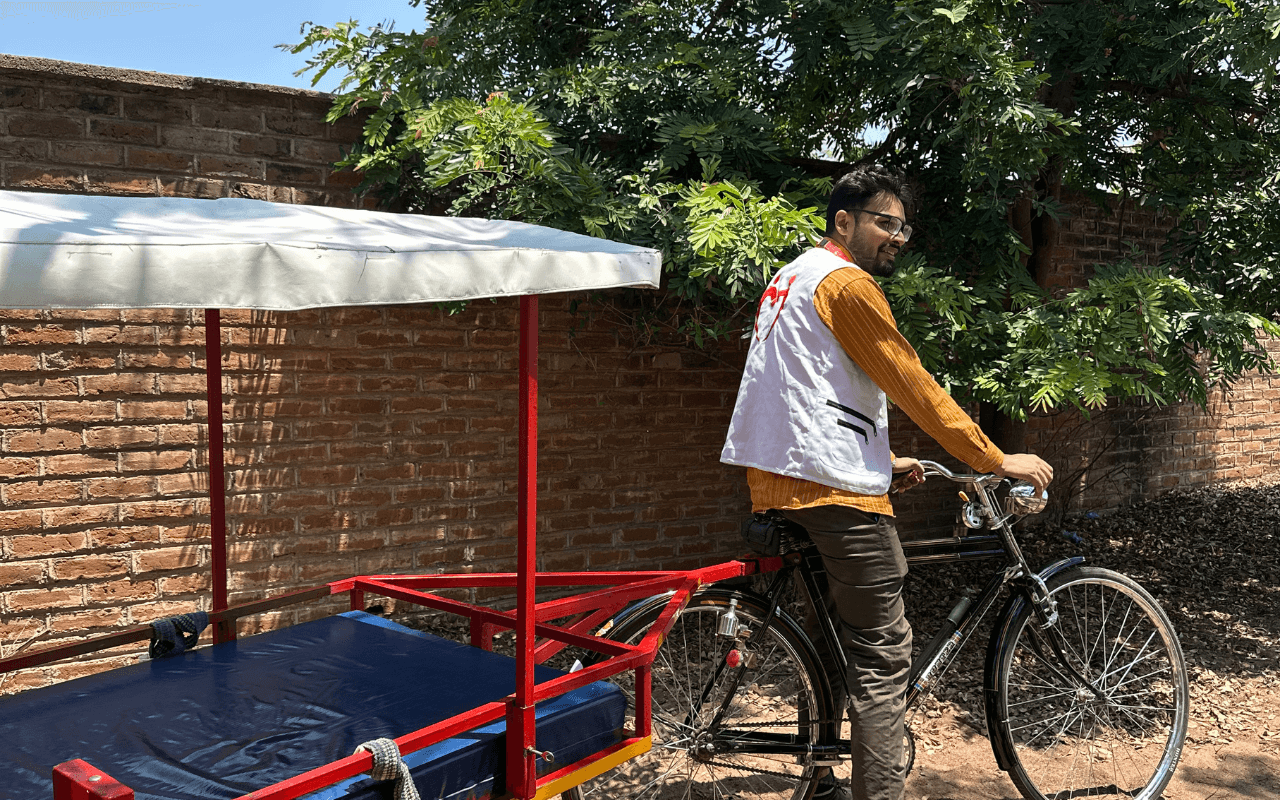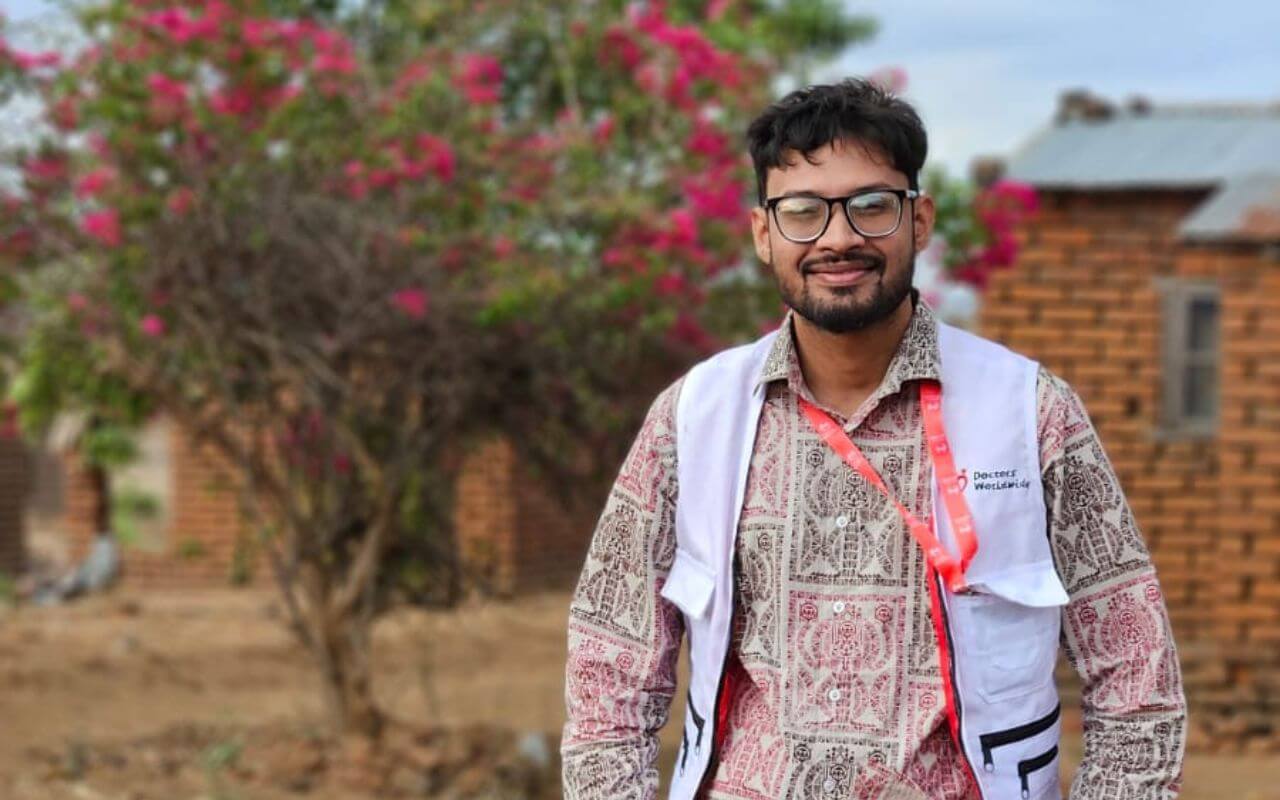In October 2024, I had my second deployment in Malawi and this experience reinforced the essential work being done there while revealing both progress and ongoing challenges. This trip, like my first, brought both inspiring and sobering insights into the healthcare landscape in Malawi. It was a highly productive journey filled with impactful clinic visits, important meetings, and training sessions with local healthcare professionals—who showed an inspiring commitment to their communities despite numerous obstacles. Comparing this deployment with my first allowed me to see both areas of progress and persistent challenges, highlighting the ongoing needs within Malawi’s healthcare system.
We began our visits at an outpatient facility in a remote village in Blantyre. As in my previous deployment, I witnessed first-hand the dedication of clinic staff who serve under difficult conditions. This facility supports a catchment population of 3,000 people living in extreme poverty, without essential infrastructure like roads and electricity, and has an inadequate water supply. The resource and funding constraints directly affect healthcare delivery, a reality that was also evident during my first visit in Malawi. Yet, despite these hardships, the clinic owner and clinician volunteer their time and resources, highlighting once again the resilience and determination of Malawi’s healthcare workers. This tireless dedication is something I observed consistently in both deployments, though this time, I felt a deeper appreciation for the extent of their commitment to serve their own community by providing access to health care services .
The second clinic in Blantyre had outpatient and maternity services, and though better equipped infrastructure set up than other existing health care centers , it had been non operational from the past two weeks due to funding and human resources shortage—a common scenario in Malawi’s health sector. These financial and resource constraints emerged as a significant barrier to consistent service delivery in many established health care facilities in Malawi - an unfortunate reality that’s all too common in Malawi’s healthcare sector.
We also visited three facilities in Mangochi district, located 260 km from Blantyre, which takes around 4 to 5 hours to drive. From Mangochi to the facilities, it's another 3 to 4 hours on difficult roads. Each of these facilities faces unique challenges. Two of them are in very hard to reach areas , where unreliable transportation and poor hilly side road conditions are major barriers, especially for maternity cases that require urgent referrals, often taking around 3 hours to reach a referral center. During the rainy season, the muddy roads become nearly impassable, turning what should be a three-hour journey into a difficult ordeal. Despite these challenges, the facilities do their best, but limited access to electricity, functional laboratories, and ambulance services significantly hampers their ability to provide consistent care.
One of the most impactful parts of this trip was conducting a mobile clinic in Balaka, at a remote village called Chinsinga. Access to healthcare remains a major challenge here, just as I saw in similar conditions during my first deployment. In both of these deployments, I observed how difficult it is for people in these isolated areas to access basic health services due to the roads and transportation options. When we set up the mobile clinic, the response was overwhelming; a large crowd gathered, eager for care. Many patients were women and children, and their gratitude and happiness were reminders of the difference that accessible healthcare can make.
In the previous deployment, community members expressed a similar need for regular healthcare access. This time, based on that feedback, we prepared to meet this demand and were able to provide more comprehensive services. The community's appreciation of access to health care services serves as a reminder of how fortunate we are to have the ability of accessing these kind of healthcare provisions with ease.

We also visited two other healthcare facilities to observe the success of our Ambu Bike projects in Malawi. It’s truly rewarding to see the positive impact the Ambu Bike has had in improving access to healthcare, especially for communities facing mobility challenges or affected by chronic conditions and disabilities. Some of the beneficiaries even came to meet us to express their gratitude for the service, which has made their lives significantly easier. We heard many inspiring stories from operators, coordinators, and patients about the difference the Ambu Bike service has made and how it has become an integral part of their lives .
A key focus of these deployments was training healthcare professionals to strengthen local capacity. This time, we held training sessions in Blantyre and Mangochi, bringing together 34 staff from 13 facilities. Approximately 60% of participants had never received formal training in many aspects of healthcare provision, despite facing complex health issues in their day-to-day work. This was consistent with my experience in the first deployment, where many healthcare workers had not received adequate training due to resource limitations.
The eagerness of these professionals to learn and improve their skills was even more evident this time around. They expressed a strong desire for ongoing education, but this time, the demand for more in-depth training was clearer. Many participants asked for extended training opportunities to fully grasp new practices, emphasising the importance of investing in long-term skill development.
Alongside our work, we had the chance to explore some beautiful parts of Malawi. This time, we visited Monkey Bay on Lake Malawi, a breathtaking freshwater lake surrounded by mountains, offering a stunning view that would captivate any visitor .We went on a safari ride somewhere in Blantyre, where we saw some of Africa’s incredible wildlife. Experiencing these landscapes reminds us of Malawi’s rich heritage and the immense potential for growth and improvement in the future.
Reflecting on both deployments, I am deeply impressed by the commitment and resilience of Malawi’s healthcare workers. Their dedication to serving their communities, often under extremely challenging conditions, is humbling. While some improvements have been made since my first visit, the core challenges remain—limited resources, insufficient funding, and inadequate infrastructure. Yet, the unwavering dedication of the healthcare professionals we work with has only strengthened my belief in the importance of our mission.
We aim to continue supporting these healthcare facilities by building their capacity and providing ongoing training for healthcare professionals.Their dedication to learning and improving their service delivery within such constrained circumstances was incredibly motivating. I strongly believe that by investing in the capacity building of these young professionals, we can create a significant and lasting impact on Malawi’s healthcare system. As we move forward, we are committed to helping build a healthcare framework that can better meet the needs of Malawi’s communities.
Learn More: https://www.doctorsworldwide.org/projects


